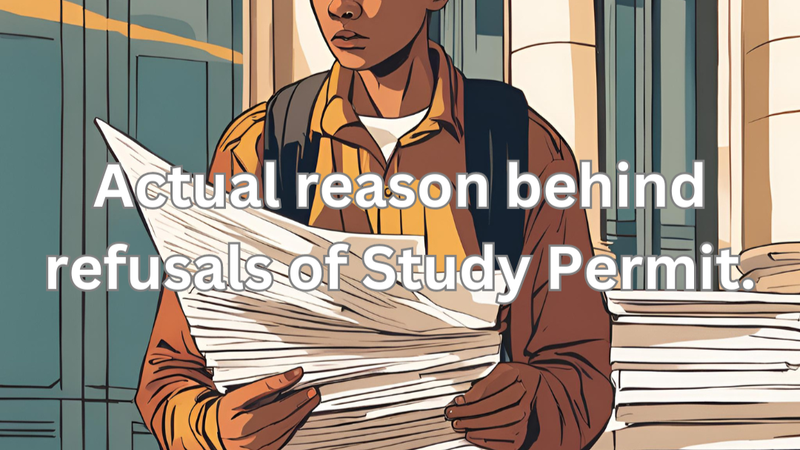Upon receiving a decision letter from Immigration, Refugees and Citizenship Canada (IRCC), study permit applicants may get unclear about the reason for the decision and the following steps to take. Initially, it is necessary to ascertain the correct cause for the rejection; however, the applicant will typically receive a brief note on the rejection letter. It says that the officer is not satisfied that applicant will leave Canada at the end of their stay as required by paragraph R216(1)(b) of the Immigration and refugee protection regulation (IRPR).
What is Rule 216(1)(b) of IRPR?
It gives the case office a power to grant a study permit if the officer has reason to think that the applicant will depart Canada before the time frame under Division 2 of Part 9 for the applicant’s study is up. Once more, it skips to a different section of the rule. To grasp that, we must now perceive that.
What is Division 2 of part 9 of IRPR?
All limitations imposed on all kinds of temporary residence licenses are defined in Part 9 of the IRPA. Furthermore, the conditions of temporary resident permits are defined in Division 2 of Part 9. Rule 183 through Rule 185 make up Part 9. The general conditions listed in Rule 183 apply to all temporary permits; the conditions listed in Rule 184 apply to crew members and are not relevant to study permit applicants; and the specific conditions listed in Rule 185 apply to all permit holders and are not relevant at this time because they are imposed on or after the permit is issued.
Based on the reasons given above, I would like to state that most refusals are made because the officer believes the applicant will attempt to stay in Canada while disobeying the general requirements placed on the temporary residence visa. Perception by itself, however, is not adequate; an officer must provide reasons for why a perception is accurate. What information was missing from the application that supported the decisions?
The note given in the refusal letter is not enough to judge your application. To find out the real reason for the rejection, applicants must obtain the GCMS note. If an applicant is not satisfied with the explanation, they can ask for a judicial review at the Canadian federal court.

Leave a Reply